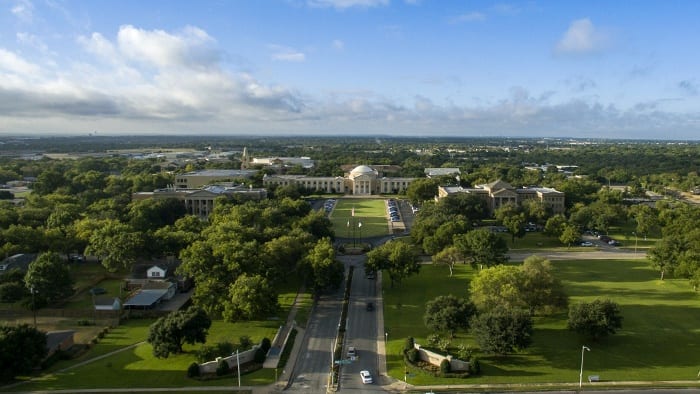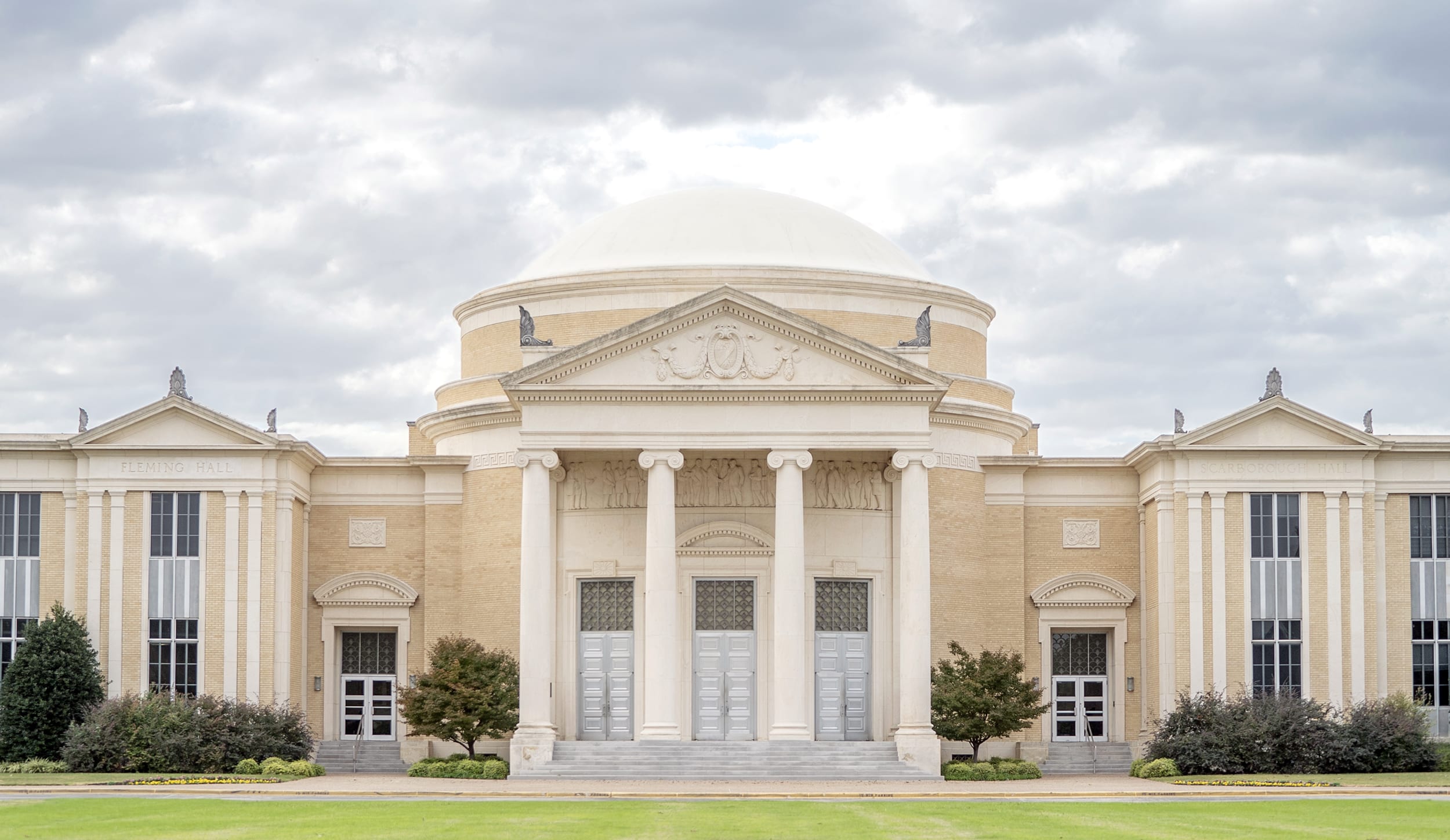Texas Attorney General Ken Paxton has filed a motion to intervene in a lawsuit filed by Southwestern Baptist Theological Seminary (SWBTS) and Baylor University against a charitable foundation, claiming intervention is “necessary … to protect the public interest in charity.”
The attorney general’s reasoning closely tracks that of Southwestern and Baylor. In the lawsuit, originally filed Sept. 8 in Tarrant County District Court, the schools allege some members of the board of the Harold E. Riley Foundation, which was set up solely to benefit the schools, led a “secret coup” to “seize control” of the foundation – altering its purpose, stripping the schools of their rights and status as beneficiaries and misappropriating assets worth millions of dollars. Defendants include the Riley Foundation and Mike Hughes, the foundation’s president who is a former SWBTS vice president.
A temporary injunction hearing Dec. 2 was postponed until January after a dispute over documents sought by the plaintiffs in discovery. A hearing on the dispute is set for Dec. 14.
In his filing, Paxton alleges that Hughes and Charles Hott, the Riley Foundation’s chief investment officer, “began to develop a scheme … to receive substantial salaries and benefits from this charitable Foundation and find a way to change the structure of the Foundation to the detriment of its sole charitable beneficiaries, Baylor and Southwestern.” The attorney general further alleges that the “actions of the Foundation, Hughes and Hott appear to reflect serious breaches of fiduciary duties owed to the Foundation and most importantly, the ultimate charitable beneficiaries.”
Additionally, Paxton “specifically asserts his right to amend this Petition in Intervention as necessary to assert additional affirmative relief following his review of the complete pleadings and the development of further evidence.”
SWBTS President Adam W. Greenway said in a statement he is “grateful” for Paxton’s decision.
“Acting in the public interest, the attorney general’s petition underscores the egregious nature of the (Riley) Foundation’s actions contravening the explicit donor intent of Harold E. Riley in his creation of the Foundation to be controlled by and supportive of the sole members/beneficiaries,” Greenway said. “We remain prayerful for a just outcome that upholds Mr. Riley’s wishes and holds accountable those who have acted contrary to his intent.”
A Baylor spokesman declined to comment on the attorney general’s petition to intervene, citing the upcoming hearing.
The lawsuit stems from an alleged meeting in June 2018 at which the schools claim the foundation’s governing documents were improperly restructured. The lawsuit also claims the Riley Foundation board is attempting to “seize control” of the board of directors of Citizens Inc., a publicly held insurance company whose stock forms the primary asset of the foundation.
Hott is also a member of SWBTS’s board of trustees. He and Thomas Pulley, another SWBTS trustee who is a former member of the Riley Foundation board, have been suspended by SWBTS’s trustee officers because of “trustee misconduct.”
The attorney general’s petition alleged that Hott testified in a deposition “that his and Hughes’ plan is to ultimately convert the (Riley) Foundation into a stock trading platform.” It further alleges that Hughes, who was a vice president at SWBTS under former president Paige Patterson, “knew he was going to be out of a job at Southwestern Seminary and put himself in position with the Foundation to receive a six figure paycheck, life insurance benefits, and unlimited use of a vehicle …”
The Riley Foundation filed suit Sept. 2 to force Citizens to seat five directors, including Riley Foundation trustees Augie Boto, Hott and Hughes. Citizens, a Texas-based insurance company founded by Riley, is publicly traded on the New York Stock Exchange and valued at more than $300 million. According to the schools’ lawsuit, positions on the Citizens board of directors are compensated annually in excess of $100,000.
The attempt to seat directors of Citizens initially included former SWBTS President Paige Patterson; according to the Riley Foundation’s complaint in its lawsuit against Citizens, Patterson resigned Sept. 1 from the attempt to be seated as a Citizens director.
According to the schools’ most recent court filing Nov. 25, Hott acknowledged in a deposition the Riley Foundation had “estimated expenditures of $1.2 million in 2020 to fund legal fees” in the lawsuit to seat directors of Citizens. The filing asserts the Riley Foundation has spent $800,000 thus far in the suit.
“Most troubling,” the attorney general wrote in his petition in intervention, “is that neither Hughes nor Hott can explain how the Foundation assets dropped from $18.3 million in January 2020 to $12.3 million in September 2020, a loss of $6 million in less than a year.”
Boto, a Riley Foundation trustee, is the former executive vice president of the Southern Baptist Convention (SBC) Executive Committee (EC). He served as the SBC EC’s interim president from 2018-19.
Hughes, Hott and Boto did not respond Wednesday to text messages requesting comment. Boto told Baptist Press (BP) September the lawsuit’s claims were “absurd,” and that the Riley Foundation board was “committed to supporting the ongoing work of both (SWBTS and Baylor) for as long as possible, as well as possible. That was what Harold Riley wanted. We’ll stay true to that assignment.”
Hott told BP in September “virtually every allegation” in the initial complaint was “completely false, without merit.”
Harold Riley, who died in 2017, was a major donor to both SWBTS and Baylor. He set up the charitable foundation in 2002.
The Riley Foundation was set up with SWBTS and Baylor as sole beneficiaries. Each school was granted three members on the foundation’s board, giving the schools’ combined representation a majority of the 11-member board.
Upon Riley’s death, assets including more than 1 million shares of Citizens were transferred to the foundation. According to the foundation’s 2018 tax documents, payouts to the two schools that year totaled $298,800.
But in a meeting June 11, 2018, the board was downsized and the schools’ right to appoint board members was eliminated. The foundation’s tax status was changed from a public charity to a private foundation.
The lawsuit alleges that the meeting was conducted illegally, without adequate notice to SWBTS or Baylor and without the required number of foundation board members present. It also asserts that months earlier, in Dec. 2017, the Riley Foundation trustees had “unanimously rejected Hughes’ proposal to alter the governance rights in this manner – even though that earlier proposal would have preserved” SWBTS’s and Baylor’s rights to a controlling majority on the board.
It also alleges that after the changes were made, “substantial assets and funds provided to the Foundation by Mr. Riley have been irresponsibly wasted … and used for purposes other than to benefit Baylor and Southwestern.”
The schools’ court filing noted that the June 11, 2018, Riley Foundation meeting, as well as one 10 days earlier, came only days after Patterson was fired by SWBTS’s board of trustees, an event which would have “rendered the termination of Hughes’ employment” at SWBTS “likely.” It asserted that Boto and Hott are “also long time, close allies of Patterson in Baptist circles.”
The schools allege the Riley Foundation board members “began paying themselves, and set up employment and substantial pay for Hughes and Charles Hott.” Subsequent emails between Hott, Hughes and Boto, included as exhibits in the plaintiffs’ petition filed last week, discuss Hott’s idea of using a controlling interest in Citizens Inc. to turn the Riley Foundation into “a high frequency quantitative trading powerhouse.”
Other emails between Hughes and Boto discuss using Riley Foundation distributions to SWBTS and Baylor “as punishment for ‘every cock-eyed misstep,’ and as a method of keeping Baylor and SWBTS ‘lashed to the cross.’”
The schools seek to regain control of the Riley Foundation, “as Mr. Riley had intended.” In his motion to intervene, Paxton asserted that “the Attorney General’s presence in this matter is warranted to protect the interests of the public in charitable trusts,” noting that under Texas law, “the Attorney General’s role includes ensuring that donor intent is adequately ascertained and taken into consideration in any judgment or settlement.”
(EDITOR’S NOTE – George Schroeder is associate vice president for convention news and is enrolled at Southwestern as a part-time, distance student and is the father of a Baylor student.)


